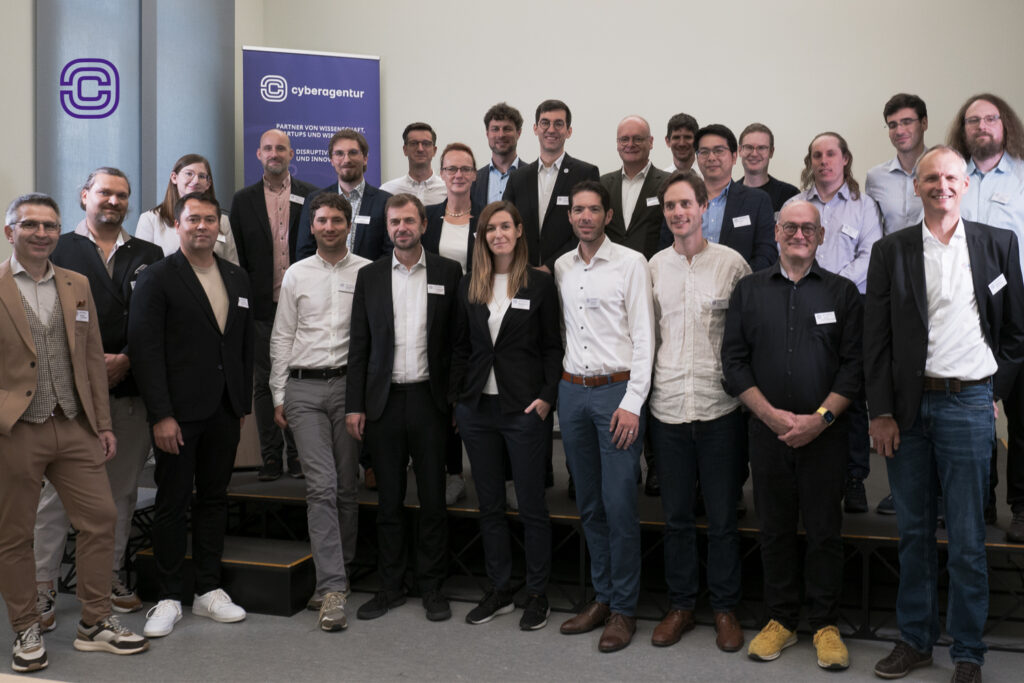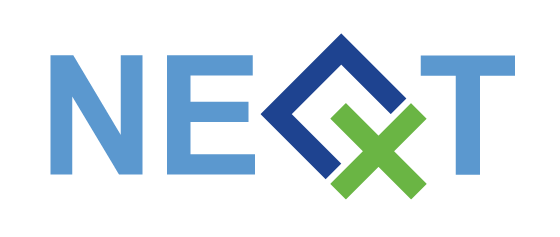Contracts with technology companies for the development of mobile quantum computers

The Agentur für Innovation in der Cybersicherheit GmbH (Cyberagentur) has today (18.09.2024) signed contracts with three international technology companies for the development of mobile quantum computers. With an investment of over 35 million euros, this project marks a milestone in quantum research and lays the foundation for new fields of application for quantum computers. The aim is to enable mobile use in security and defense scenarios as well as in civilian applications.
The contracts for a groundbreaking research project for the development of mobile quantum computers were signed today at the Cyberagentur headquarters in Halle (Saale). The three international technology companies and consortia, neQxt GmbH, Oxford Ionics Limited together with Infineon Technologies AG, and Quantum Brilliance GmbH together with Parity Quantum Computing GmbH, were able to win the tender for the Cyberagentur’s largest research funding, totaling over 35 million euros, with their innovative concepts. Together with the Research Director, Prof. Dr. Christian Hummert and the Commercial Director, Daniel Mayer, the representatives of the project partners, Sebastian Deuser, CEO neQxt GmbH and Dr. Janine Hilder, CSO neQxt GmbH, for the “maQue” project, Tom Harty, CTO at Oxford Ionics (UK) and Stephan Schächer, Senior Principal Quantum Technologies at Infineon Technologies AG, for the “Min-Ion” project, as well as Magdalena Hauser and Wolfgang Lechner, Co-CEOs of ParityQC (Austria) and Mark Luo, CEO of Quantum Brillance (Australia), for the “Diamonds-MQC” project, signed the contract documents for the collaboration in the research project.
The research objective of the project “Mobile quantum computer – quantum processors for mobile use in defence and security applications” is to drive forward the miniaturization of quantum computers and the necessary peripherals while maintaining high performance. The construction and proof of function of a reproducible and programmable mobile quantum computer was defined as a project result. Such a mobile quantum computer should be compact, lightweight, energy-efficient and robust against changing environmental conditions to enable its use in security and defense scenarios. Dr. Roman Bansen, Head of Quantum Technologies at the Cyberagentur, explains: “Mobile systems are particularly important for security and defence scenarios, as they can operate independently of a data connection to stationary data centers. This is especially essential in crisis or defense situations. At the same time, mobile quantum computers also potentially offer considerable advantages for civilian applications.”
The selected companies taking part in the four-phase competition have committed to researching innovative approaches to the miniaturization and energy efficiency of quantum computers. The aim is to optimize the physical realization of the qubits and the necessary peripheral devices in such a way that quantum computers can also be operated outside of laboratories.
The contract partners were able to present their project ideas during the signing ceremony and showed current exhibits on the subject of quantum computers.
The current project aims to bring Germany to the forefront of technology in the field of mobile quantum computing, to secure its existing leading position in quantum technology research and thus to strengthen Germany’s digital sovereignty. In future, the research results are likely to be used not only in a military context, but also in civilian areas.
Keynote speaker Bernd Schlömer, State Secretary for Digitization in the Ministry of Infrastructure and Digital Affairs of Saxony-Anhalt and Commissioner of the State Government for Information Technology (CIO), had many words of praise for the project and the innovative approach behind it. He said that this technology would enable the state to maintain its position as a world leader and be perceived as a sovereign partner in the field of quantum technology. He has worked in the field of quantum technology for a long time and is aware of the opportunities this technology offers for Germany as a business location.
The research project will be an important step in the further development and implementation of quantum computers for mobile applications. The cooperation with leading technology companies represents a decisive contribution to securing Germany’s digital future.
maQue (neQxt GmbH)
maQue’s aim is to integrate existing technologies into a compact, modular, scalable and mobile system. NeQxt is a full-stack quantum computing company. The start-up covers the entire spectrum from hardware production to software development. NeQxt is a spin-off of the Johannes Gutenberg University Mainz, which emerged from the Schmidt-Kaler working group. NeQxt therefore benefits from decades of experience in the field of ion trap quantum computers.
